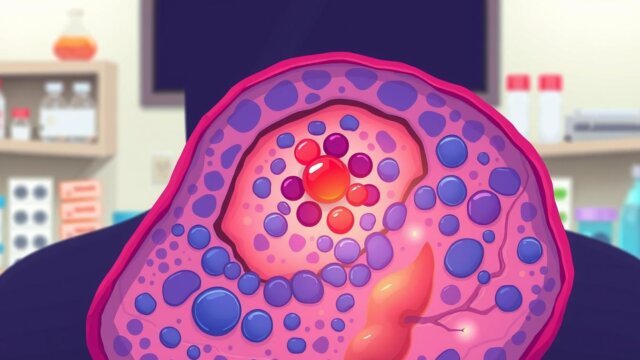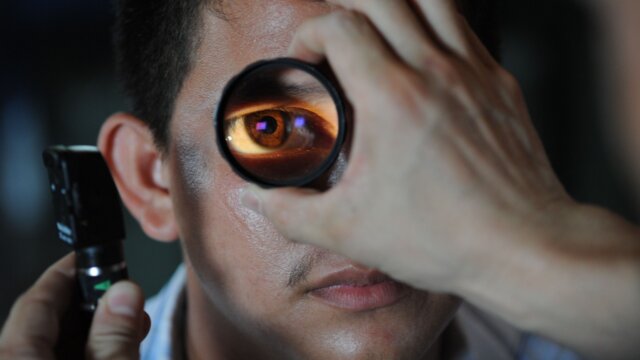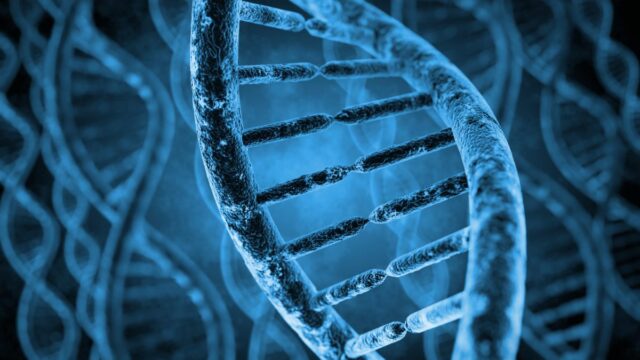FTC disclaimer: This post may contains affiliate links and we will be compensated if you click on a link and make a purchase.
Did you know the human body has over 50 types of hormones? These hormones help control many body functions, like metabolism and growth. But, when hormones get out of balance, it can cause big problems for women’s health.
Many things can cause hormonal changes in women, like growing up, being pregnant, or going through menopause. Stress, some medicines, and health issues can also cause these changes. These changes can lead to symptoms like weight changes, less desire for sex, acne, irregular periods, and mood swings.
Key Takeaways
- Hormones are key messengers in the body.
- When hormones get out of balance, it can cause symptoms like weight changes, acne, and mood swings.
- Things like growing up, being pregnant, or having certain health issues can cause these imbalances.
- Getting the right diagnosis and treatment is key to handling these imbalances.
- Staying active, eating well, and managing stress can help keep your hormones healthy.
It’s important to understand how hormones affect women’s health. Knowing the causes, symptoms, and treatments can help you take steps to improve your health.
Understanding Hormonal Imbalances in Women
What are Hormones and Their Role
Hormones are key chemical messengers made by glands in the endocrine system. They move through the blood to tell other parts of the body how to work. Hormones manage important body processes like metabolism, growth, and mood. Even small changes in hormone levels can affect the body a lot.
Common Hormonal Imbalances in Women
Women often face hormonal imbalances like too much or too little estrogen and progesterone, too much testosterone, thyroid issues, and PCOS. These imbalances can cause problems like irregular periods, mood swings, and acne. Thyroid problems can change metabolism and energy levels. PCOS affects ovulation and can cause infertility and other issues.
Hormonal imbalances can mess with metabolism, blood sugar, growth, and more. While both men and women can have imbalances, women often deal with estrogen and progesterone issues, and men with testosterone.
These imbalances can make you gain weight for many reasons, like thyroid issues or menopause. Conditions like Cushing’s syndrome and menopause can also cause weight gain. Hypothyroidism makes you gain weight because your metabolism slows down.
Imbalances can make you feel anxious, especially if you have hyperthyroidism or Cushing’s syndrome. Not having enough growth hormone can make you feel anxious and depressed.
“Hormones are essential chemical messengers that play a crucial role in regulating various bodily functions.”
Stress, some medicines, and steroids can mess with hormone levels. Tumors and autoimmune diseases can also disrupt hormone balance. Brain injuries can hurt the glands that control hormones.
During pregnancy, hormone levels change to help the baby grow, but this doesn’t always mean you have a hormonal imbalance. Women face hormonal changes at different times in life, like during puberty or menopause, due to various reasons.
To check for hormonal imbalances, doctors might do blood tests, imaging studies, or urine tests. Endocrine disorders can come from many sources, like diabetes or thyroid problems, or from your lifestyle and environment.
For hormonal imbalances, treatments might include birth control pills, estrogen creams, or testosterone medicine. For men, treatments might be testosterone supplements for conditions like low testosterone. Some people use supplements like black cohosh to help with hormonal issues, but there’s not much proof they work.
Symptoms of Hormonal Imbalance in Women
Hormonal imbalances in women can cause many symptoms. These symptoms depend on the hormones affected and how much they are out of balance. Symptoms include weight changes, changes in sex drive, acne, irregular periods, hair loss, fatigue, anxiety, depression, and trouble focusing.
For example, hormonal imbalances can make you gain weight. This is because of insulin issues in PCOS, which affects 5% to 10% of women who can have babies. Or, low estrogen levels can make you hungrier. Irregular periods, heavy bleeding, and uterine fibroids can also show hormonal changes.
Also, hormonal imbalances can mess with your sleep, cause acne, affect digestion, and change your mood, making you irritable and dry down there. High prolactin levels can cause nipple discharge. Hair loss and cold hands and feet might mean thyroid problems.
Many of these symptoms can also be signs of other health issues. So, it’s key to work with a doctor to figure out the cause and get the right treatment.
Symptom | Potential Cause |
|---|---|
Weight changes | PCOS, estrogen fluctuations |
Sex drive changes | Testosterone, estrogen, or progesterone imbalances |
Acne | Excess androgen production |
Irregular periods | PCOS, thyroid disorders |
Hair loss | Estrogen and progesterone imbalances |
Mood changes | Estrogen, progesterone, and thyroid hormone fluctuations |
Spotting and treating hormonal imbalances early is key. This helps prevent worse symptoms and long-term health problems.
Causes of Hormonal Changes in Women
Women’s bodies change a lot with hormones at different life stages. These changes help control important body functions. They affect metabolism, reproduction, growth, and health.
Natural Hormonal Fluctuations
At puberty, the body makes more sex hormones. These hormones cause the changes of growing up. During pregnancy, hormones change a lot to help the baby grow and get ready for birth and breastfeeding. As women get closer to menopause, hormone levels drop. This can cause hot flashes, night sweats, and irregular periods. These changes are normal and part of life.
Medical Conditions Causing Hormonal Imbalances
Some medical issues can also cause hormonal imbalances in women. These include thyroid problems, PCOS, Cushing’s syndrome, pituitary tumors, and ovarian issues. These can lead to too much or too little of hormones like thyroid hormones, cortisol, estrogen, progesterone, and testosterone. Getting treatment for these conditions is key to balancing hormones.
Knowing about hormonal changes in women helps them manage their health better. They can take steps to care for their hormonal health and get the right treatment when needed.
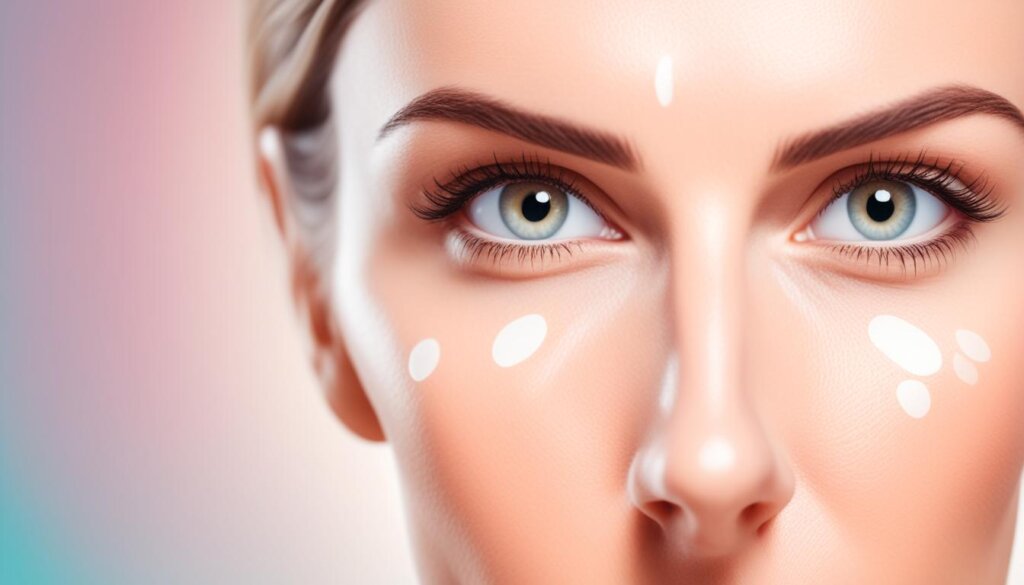
Hormonal Changes in Women: Menstrual Cycle and Reproductive Health
The menstrual cycle is linked to changes in hormones like estrogen and progesterone. These hormones go up and down over a 28-day cycle to help ovulation and get the uterus ready for a fertilized egg. Most women have their period every month, but the length can vary from 24 to 38 days. But, only a small number of women have cycles that are exactly 28 days long.
When reproductive hormones get out of balance, it can cause problems like irregular or heavy periods, ovulation issues, and fertility problems. Conditions like Polycystic Ovary Syndrome (PCOS) can mess with the menstrual cycle and hurt reproductive health. It’s important to manage these hormonal imbalances to keep periods regular and improve fertility.
There are key hormonal events during the menstrual cycle:
- Ovulation happens 28 to 36 hours after the LH surge, usually around day thirteen of the cycle.
- The luteal phase starts with ovulation and lasts about 14 days, but can be 12 to 15 days long.
- Progesterone, made by the corpus luteum in the luteal phase, helps make a ready spot in the uterus for a fertilized egg.
- If no embryo sticks, the corpus luteum breaks down, hormone levels drop, and the endometrium sheds, causing bleeding, about fourteen days after ovulation.
Knowing about the hormonal changes in the menstrual cycle is key for women’s reproductive health. It helps with managing issues like infertility, PCOS, and irregular periods.
Menstrual Cycle Phases | Duration | Key Events |
|---|---|---|
Follicular Phase | 13-14 days on average | Follicle growth, estrogen levels rise |
Ovulatory Phase | 16-32 hours | Egg release, LH surge |
Luteal Phase | 14 days | Corpus luteum forms, progesterone is made |
Menstruation | 4-8 days | Endometrium sheds, bleeding starts |
Understanding the menstrual cycle and its hormonal changes helps women manage their reproductive health. It also helps address any hormonal imbalances.
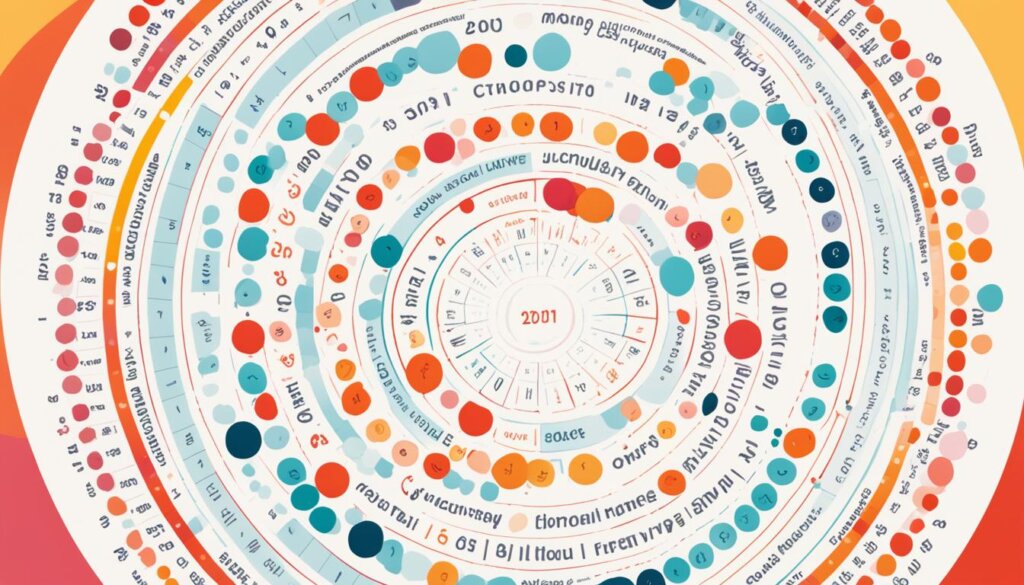
“Menstrual cycles are not just about bleeding – they’re a window into a woman’s health and fertility.” – Dr. Jane Doe, Reproductive Endocrinologist
Hormonal Changes during Menopause
Menopause is a big change in a woman’s life. It happens when her body makes less estrogen and progesterone. This means her periods stop coming. She may feel hot flashes, night sweats, vaginal dryness, and have trouble sleeping.
The average age for menopause is about 51 in the U.S. But it can start in the 30s or the mid-50s. Smoking, being thin, or having certain health issues can make menopause come sooner. Being overweight might make it come later.
These changes are part of aging, but there are ways to feel better. Using hormone therapy, changing your lifestyle, and trying other treatments can help with symptoms.

Women should talk to their doctors about these changes. They can find the best ways to handle menopause symptoms.
Thyroid Disorders and Hormonal Imbalances
Keeping your thyroid healthy is key for your metabolism, body temperature, and energy. Thyroid hormone imbalances, like hypothyroidism (underactive thyroid) or hyperthyroidism (overactive thyroid), affect your health a lot.
If you have hypothyroidism, you might feel tired, gain weight, have constipation, and feel sad. Hyperthyroidism can make you lose weight too fast, make your heart beat fast, make you anxious, and make your muscles weak. It’s important to get the right treatment for thyroid problems to fix hormonal imbalances and ease symptoms.
Women are more likely to have thyroid problems than men. In fact, 1 in 8 women will get a thyroid problem at some point. Women are five to eight times more likely to have thyroid issues than men.
Thyroid Disorder | Prevalence | Symptoms |
|---|---|---|
Hypothyroidism | Affects nearly 1 in 20 Americans over the age of 12 | Fatigue, weight gain, cold intolerance, irregular menstrual cycles |
Hyperthyroidism | Reported to affect only 1 in 100 individuals | Weight loss, increased heart rate, anxiety, irregular menstrual cycles |
Thyroid problems can affect a woman’s reproductive health in many ways, like during puberty, menstruation, ovulation, pregnancy, after having a baby, and during menopause. If not treated, these problems can cause emotional and mental health issues, like feeling sad, tired, gaining weight, having less sex drive, and trouble thinking clearly.
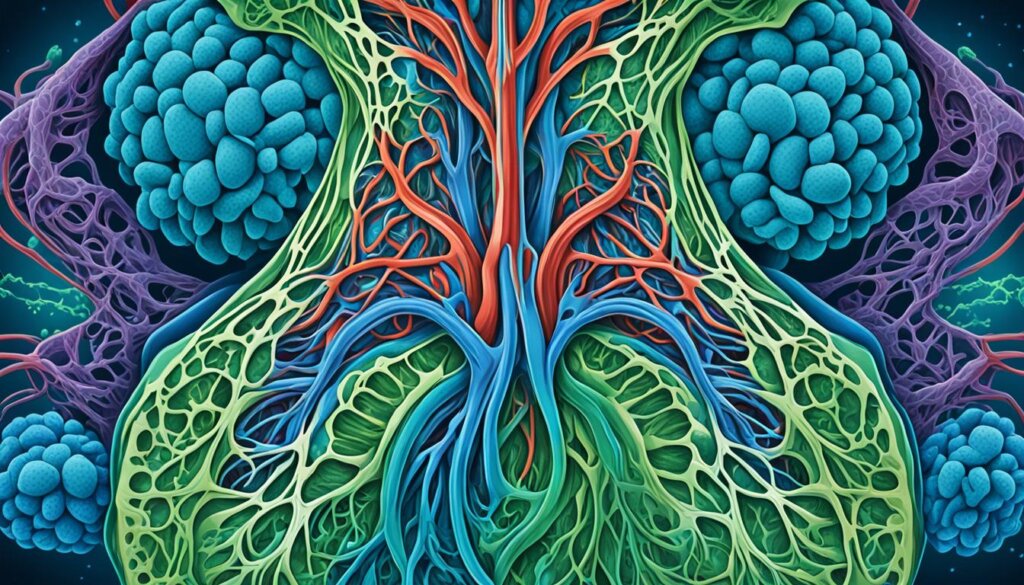
To diagnose and manage thyroid disorders, doctors use blood tests to check thyroid hormone and thyroid-stimulating hormone levels. Treatment might include synthetic thyroid hormones for hypothyroidism or other treatments for hyperthyroidism. Eating well, managing stress, and seeing your doctor regularly can also help keep your thyroid and hormones balanced.
“Properly diagnosing and treating thyroid disorders is crucial for restoring hormonal balance and alleviating associated symptoms.”
Hormonal Changes in Women and Weight Management
Hormonal imbalances can greatly affect a woman’s weight and metabolism. Conditions like hypothyroidism and PCOS disrupt thyroid and reproductive hormones, leading to weight gain and making it hard to lose weight. As women get older, estrogen levels drop, which can also change their weight, since estrogen helps control metabolism.
Women with PCOS often face insulin resistance, which can cause obesity and raise the risk of type 2 diabetes and heart disease. Eating a Mediterranean diet and staying active can help improve insulin sensitivity and lower insulin resistance. Omega-3 fatty acids might also help make insulin work better in people with metabolic issues.
Hormonal imbalances can mess with hormones like leptin and ghrelin that control hunger. Leptin resistance, often seen in obesity, can stop you from feeling full, leading to eating too much. Exercise can help lower leptin levels in obese people. Ghrelin, the hunger hormone, can make people eat more when they’re obese, and getting enough sleep can help control ghrelin levels.
Chronic stress and high cortisol levels are linked to gaining weight and health problems like heart disease and diabetes. Keeping a healthy weight and eating well can help manage cortisol levels. Estrogen levels also affect weight and fat distribution, so staying at a healthy weight can balance estrogen and reduce health risks.
Fixing hormonal imbalances with medicine, diet changes, and exercise is key to a healthy weight. By understanding how hormones and weight are connected, women can take steps to manage their health and well-being.
“Hormonal imbalances can have a profound impact on a woman’s weight and overall health. By addressing these imbalances through a comprehensive approach, women can take control of their well-being and achieve their weight management goals.”
Hormonal Imbalances and Mental Health
Hormones are key to keeping our mood and emotions in check. When they’re out of balance, it can affect our mental health. This can lead to anxiety, depression, and mood swings.
Serotonin helps keep our mood stable. When it’s off balance, it can cause depression and anxiety. Dopamine is also important for our feelings and is part of the reward system in our brain. Thyroid hormones can also affect our mood, causing feelings of depression and anxiety.
Women often feel the impact of hormonal changes on their mental health. Changes in estrogen and progesterone can change how we feel during our periods, pregnancy, and menopause. Conditions like PCOS and hypothyroidism, which involve hormonal imbalances, are linked to more anxiety and depression.
Fixing hormonal imbalances can help improve mental health. Hormone replacement therapy can ease mood swings during menopause and perimenopause.
Working with your healthcare provider is key to finding and managing hormonal imbalances. They can help with both the physical and emotional sides. This way, you can find the right support and strategies for better well-being.
Diagnosis and Treatment Options
Finding out why hormones are out of balance is key to fixing it. Doctors use tests like blood tests, scans, and sometimes home tests to figure it out.
Medical Tests for Hormonal Imbalances
Blood tests check hormone levels, like thyroid and cortisol. Scans help spot problems in the thyroid, ovaries, or pituitary gland. Home tests can give hints but need a doctor’s check-up.
Conventional and Natural Treatment Approaches
Treatments mix doctor’s treatments and natural ways. Doctors might use hormone therapy or birth control. Natural methods include supplements, herbs, and changing your life to reduce stress and eat better. It’s important to work with a doctor for the best plan.
Fixing the root cause and a full treatment plan can help you feel better.
“Working closely with a healthcare provider to develop a personalized treatment plan is essential for effectively managing hormonal imbalances and improving overall health and well-being.”
Conclusion
Hormonal changes can affect a woman’s physical and mental health at all life stages. It’s key to know the causes, symptoms, and treatments for optimal hormonal health. Working with doctors helps women manage hormonal changes and improve their quality of life. Taking care of hormonal health is a big step towards better health and happiness.
Hormones are key in controlling our body and behavior, especially for women. Things we do and life events can change our fertility and sex life. Mental and brain health can also affect how our bodies work and behave. Each woman needs a special plan for her hormonal health to feel her best.
Studies have shown how hormonal changes affect women as they age. Knowing about these changes helps doctors help women with hormonal imbalances and keep their quality of life good.
FAQ
What are hormones and their role?
Hormones are made by glands in the endocrine system. They send messages through the bloodstream to tissues and organs. These messages tell them what to do and when. Hormones control important body processes like metabolism, growth, and mood.
What are some common hormonal imbalances in women?
Women often face imbalances in estrogen and progesterone, too much testosterone, thyroid issues, and PCOS.
What are the symptoms of hormonal imbalances in women?
Hormonal imbalances can cause weight changes, changes in sex drive, acne, and heavy or irregular periods. Women may also see excessive hair growth, hair loss, fatigue, anxiety, depression, and trouble concentrating.
What causes hormonal changes in women?
Hormones change naturally at different life stages, like puberty, pregnancy, and menopause. Medical issues like thyroid problems and PCOS can also cause hormonal imbalances.
How do hormonal changes affect the menstrual cycle and reproductive health?
Changes in hormones like estrogen and progesterone can make periods irregular, heavy, or painful. They can also affect ovulation and fertility. PCOS can mess up the menstrual cycle and hurt reproductive health.
What happens during the transition to menopause?
Menopause brings a drop in estrogen and progesterone levels. This can cause hot flashes, night sweats, vaginal dryness, sleep problems, mood changes, and weight gain.
How can thyroid disorders affect hormonal balance?
Thyroid hormone imbalances, whether too little or too much, can affect the body a lot. They can cause fatigue, weight changes, and mood changes.
How do hormonal imbalances impact weight and metabolism?
Conditions like hypothyroidism and PCOS mess with thyroid and reproductive hormones, leading to weight gain and making it hard to lose weight. Menopause’s drop in estrogen can also affect weight.
How can hormonal imbalances affect mental health?
Hormonal changes, especially in reproductive and thyroid hormones, can make anxiety, depression, and mood swings more common.
How are hormonal imbalances diagnosed and treated?
Doctors use tests like blood tests and imaging scans to find hormonal imbalances. Treatment might be hormone therapy, medicines, or natural methods like supplements and changing your lifestyle.



